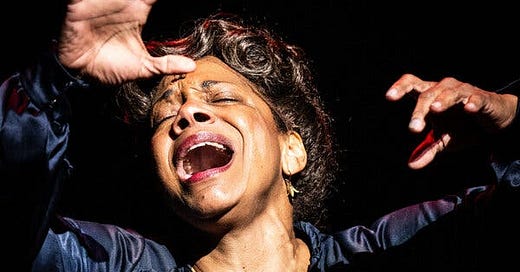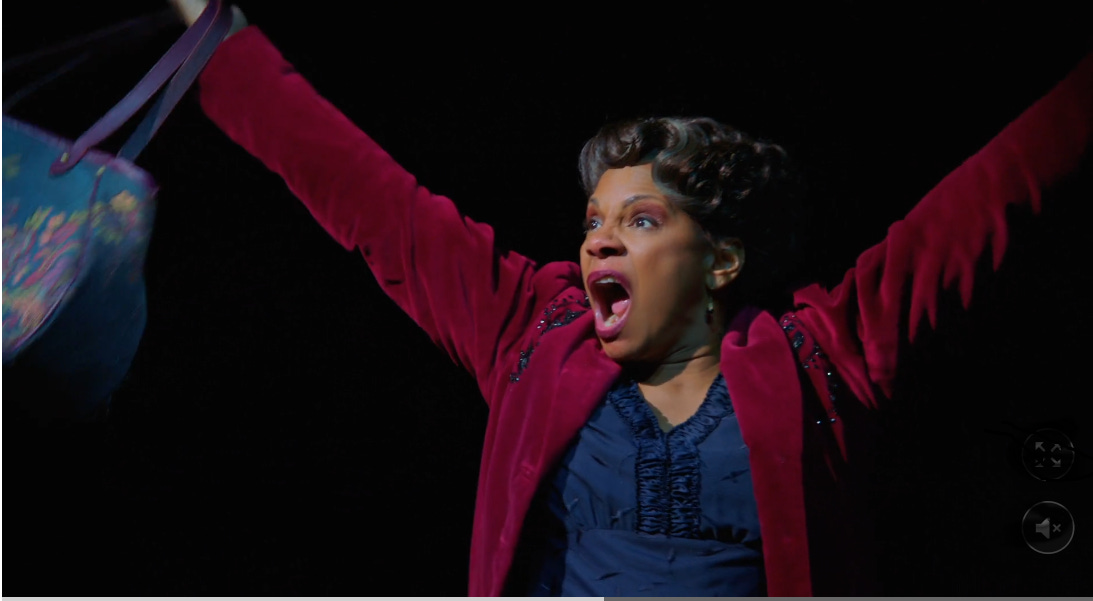Audra McDonald as Rose in Gypsy
Debora and I have dinner with friends once a week. After dinner, we watch an episode from a TV drama. My favorite is The Good Fight.
McDonald joined the show in its second season and grew into one of the main characters. (The Good Fight was not a musical. McDonald didn’t sing.)
Ben Brantley’s NYT article dissects McDonald’s performance of Rose’s Turn, the final song in Gypsy.
The song reaches you on a deeper, more visceral level than any song currently performed on Broadway. Director George C. Wolfe described it as the process of “a character stripping away and stripping away and stripping away and stripping away, and she doesn’t even know how much she’s stripping away.” Andy Einhorn, the show’s musical director, said, “It’s like watching something crawl out of the heart.”
Rose is fresh from a quarrel with her daughter, the celebrated stripper Gypsy Rose Lee, who has told the mother who pushed her into stardom that she no longer needs her.
It begins as an angry yelp of defiance as Rose, in her mind, at last claims the spotlight for herself and imagines the star she could have been. “And then,” as Wolfe put it, “she foolishly and unconsciously starts to ask the questions. And they’re brutal questions.”
Rose segues into a recapitulation of all the rejections of her life, wondering, “Why did I do it? What did it get me?” And as Jule Styne’s score turns into an increasingly fragmented echo chamber of melodies used throughout the show, Rose enacts what is probably the first full-fledged nervous breakdown in American musical history.
“I realize that I don’t sing it like everybody else sings it, that people don’t think I’m a belter,” McDonald said. “Whatever. I don’t care. I’m singing it with my voice, and in a way that keeps my stamina up so I can do it eight times a week.”
McDonald’s soprano is unleashed in “Rose’s Turn” only in its last section. That’s where the one modulation occurs, and it is, Einhorn said, “a good third higher than the original.” That allows an “emotional lift,” he said, that wasn’t happening with the score as written, and that the audience is hungry for.
At any performance, “Rose’s Turn” is a hard song for McDonald “to recover from.” She said that sometimes, before the first-act curtain rises, she can’t think about what’s waiting for her in those final moments, “or I’d never set foot on the stage.”
At the number’s conclusion, she looks as raw and depleted as a person can. And the three times I’ve seen this “Gypsy,” I’ve always been astounded to discover McDonald transformed into the archetypal gracious and glamorous star for her curtain call only moments later.






